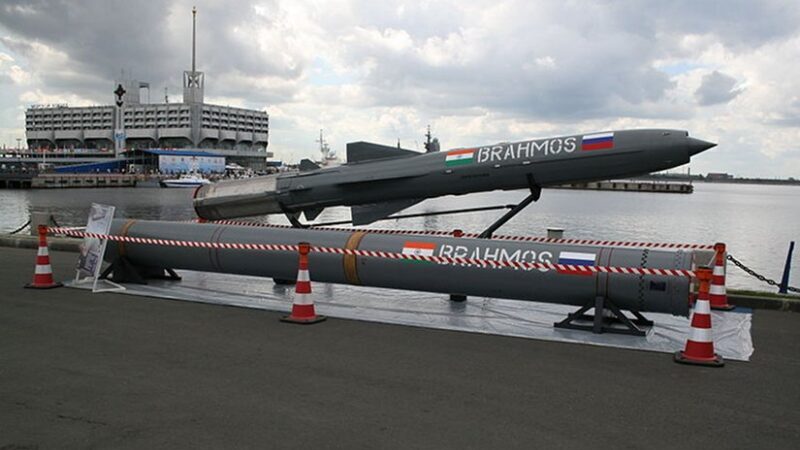BrahMos Missile Export To Manila – Analysis

Amid heightened maritime dispute between China and the Philippines over the South China Sea, India has huge stake in securing its maritime commerce in this critical maritime space. Major stakeholders such as the US, Japan, Australia and now India are extending support to bolster Philippines’ capability to deter the threat from China.
In order to support the Philippines, India signed a $375 million deal in 2022 to deliver BrahMos supersonic cruise missiles. The first batch of this missiles and launchers were delivered to the Philippines on 19 April 2024 to equip the Philippine Marines. The Indian Air Force utilised Globemaster transport aircraft to deliver the first lot of anti-ship BrahMos coastal batteries to the Clark International Airport of the Philippines. Ground systems for the BrahMos missile system were exported in March. With an eye on China’s aggressive behaviour in the Indo-Pacific, including the South China Sea, India has been steadily stepping up military ties with the ASEAN countries.
The January 2022 deal was seen as a shot in the arm for New Delhi’s efforts to emerge as an exporter of major defence hardware. This is the first export order for the BrahMos missile developed by the BrahMos Airspace, a joint venture between India and Russia. The delay in delivery was because the two nations had not signed a non-disclosure agreement.
BrahMos is the fastest cruise missile in the world with a speed of Mach 2.8, nearly three times the speed of sound. BrahMos variants can be launched from land, air and sea, and all three variants are in service in the Indian armed forces. The ones exported to the Philippines can strike targets at 290 km, though India has also developed another variant with a range of almost 500 km. In February 2024, the Cabinet Committee on Security approved the acquisition of more than 200 BrahMos missiles and associated systems that will be fitted on Indian warships, with the significant capability enhancement for the navy expected to cost around Rs. 19,000 crore. India has set a defence export target of Rs. 35,000 crore by 2024-25.
As part of efforts to boost military ties with the Philippines, India has decided to post a defence attache to that country. In a big move to expand strategic ties with key nations across the globe and also push arms exports, India has planned to post 15 to 16 new attaches from the Navy, Army and Air Force. Besides the Philippines, other countries chosen are Ethiopia, Mozambique, Poland and Ivory Coast, Armenia, Tanzania, Mozambique, and Djibouti. This is being done by cutting down on the number of military officials posted at the large missions in Russia, UK and France.
India wants its first BrahMos export order to the Philippines to pave the way for more such deals with the Philippines as well as other ASEAN countries like Indonesia and Vietnam. India’s delivery of BrahMos missiles to the Philippines signifies a significant milestone in its defence export ambitions. The move also showcases India's technological prowess and commitment to self-reliance in defence manufacturing. As India continues to explore opportunities for defence exports, addressing challenges and enhancing capabilities will be the key to realizing its vision of becoming a major defence supplier in the region.
India has taken a significant step towards bolstering its defence exports and achieving self-reliance in defence manufacturing with the delivery of BrahMos supersonic cruise missiles to the Philippines. This move reflects India's commitment to the 'Make-in-India' initiative and its aspirations to become a key defence supplier in Asia.
The strategic significance of the BrahMos missiles deal underlines the deepening military ties between India and Manila amid growing concerns over China's assertiveness in the region. The $375 million deal, marks a significant milestone as it is the first export of the BrahMos missile by India.
Each BrahMos missile is priced under $5 million each. Because of its exceptional performance, the missile has garnered significant interest from both Indian and foreign buyers. India considers BrahMos a strategic game-changer, evident in its deployment plans at the Minicoy military base to monitor Chinese activities in the Indian Ocean.
Like its advancement in space technology as demonstrated by the recent Chandrayana launch, India has also made considerable advancement in manufacturing BrahMos indigenously, which also proves the advancement it has made in technology. Over 76 per cent of BrahMos missiles are indigenously manufactured. There are plans to increase this to 85 per cent by incorporating Indian seekers and boosters, and reach 100 per cent indigenization by 2026.
India’s policy to build defense cooperation with the Philippines signals that New Delhi is now moving beyond the Indian Ocean to contribute to maintaining stability in the Indo-Pacific region. During a visit to Manila in March 2024, Indian foreign minister S. Jaishankar reiterated "India's support to the Philippines for upholding its national sovereignty." His Philippine counterpart, Enrique Manalo, reciprocated saying that his country has very deep interest to work with India together in ensuring a free, open, and inclusive Indo-Pacific Ocean. He said that "it's in this region and it is in this context that we are having extensive discussions regularly on defense cooperation, security cooperation."
An Indian coast guard ship visited the Philippines during the Indian minister's visit. The two countries are also expected to hold more joint naval drills. Philippines is aware that India is a close security partner of Manila's key strategic partners, such as the US, Japan, and Australia. This makes it even more practical for the Philippines to strengthen ties with India.
Indeed, India and the Philippines are natural partners. Both subscribe to the idea of a free and open Indo-Pacific, a region which is open to diversity and a commitment to democratic ideals aimed at promoting prosperity of the people in the region through, mainly economic cooperation.
